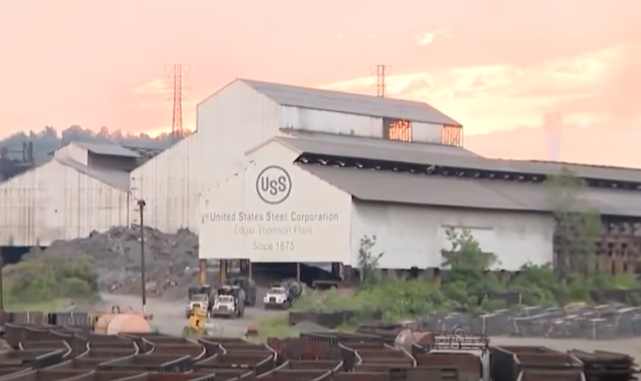News
White House to Block Nippon Steel’s $14.9B US Steel Takeover

Source: YouTube
The White House is expected to block a $14.9 billion takeover of US Steel by Japan’s Nippon Steel, citing national security concerns. This decision has triggered a political firestorm, with both Democratic and Republican leaders voicing opposition to the deal. For U.S. Steel, which has been struggling to stay competitive in the global market, the merger offered a chance to modernize and secure its future. But without it, the company has warned of devastating consequences, including the closure of some mills and the relocation of its Pittsburgh headquarters.
Why Does US Steel Need Nippon Steel?
US Steel has long been a symbol of American manufacturing strength, but its competitive edge has sadly eroded over the years. Facing stiff competition from foreign producers, especially China, US Steel saw the merger with Nippon Steel as a critical lifeline. The deal would have combined Nippon’s advanced technologies and financial resources with US Steel’s significant production capacity, creating one of the largest steel companies outside of China. The acquisition was designed to inject fresh capital into US Steel, allowing it to modernize its aging infrastructure and maintain its position in the global steel industry.
Without this deal, US Steel may struggle to make the necessary investments in its plants, risking job losses and operational declines. CEO David Burritt warned that failing to close the deal could lead to the shutdown of several mills and a potential move of the company’s headquarters from Pittsburgh, a city deeply tied to the history of American steelmaking.
Bipartisan Opposition to the Merger
Despite the potential benefits of the merger, opposition has been fierce and bipartisan. Vice President Kamala Harris and former President Donald Trump have both come out strongly against the deal, signaling that US Steel should remain under American ownership. Harris recently stated at a campaign rally that US Steel must stay “American-owned and operated,” reflecting concerns about foreign control of key industries. Trump echoed these sentiments, pledging to block the deal if elected.
This growing resistance is tied to concerns over national security. The Committee on Foreign Investment in the United States (CFIUS) is currently reviewing the deal, but the White House has already signaled its intent to halt the acquisition. The move is part of a broader protectionist trend, as American leaders prioritize safeguarding domestic industries and jobs from foreign influence.
Collateral Damage: The Consequences for Pittsburgh and US Jobs
One of the biggest concerns about the potential blockade is the impact on jobs. US Steel has already issued warnings that the failure to secure the merger could result in significant layoffs, particularly in Pennsylvania, a crucial swing state. The company has a major presence in Pittsburgh, and the prospect of its headquarters relocating would deal a heavy blow to the local economy. The merger was seen as a way to preserve thousands of union jobs and ensure the company’s long-term viability.
Moreover, the stock market reacted negatively to the news of a likely White House blockade. Shares of US Steel plummeted by over 17%, reflecting investor concerns about the company’s future. The uncertainty surrounding the deal has also shaken confidence in the American steel industry, which faces increasing pressure to stay competitive amid rising foreign competition and fluctuating demand.
What Happens If the Deal Falls Through?
If the White House moves forward with its decision to block the merger, US Steel will need to explore other avenues to secure its future. However, there are few alternatives as viable as the Nippon Steel deal. With bipartisan opposition firmly in place, the company faces a tough battle to change minds in Washington. In the meantime, the fate of U.S. Steel, its workers, and its headquarters remains uncertain.
Do you think blocking the merger will protect American jobs or hurt the steel industry’s competitiveness? Share your thoughts today!



